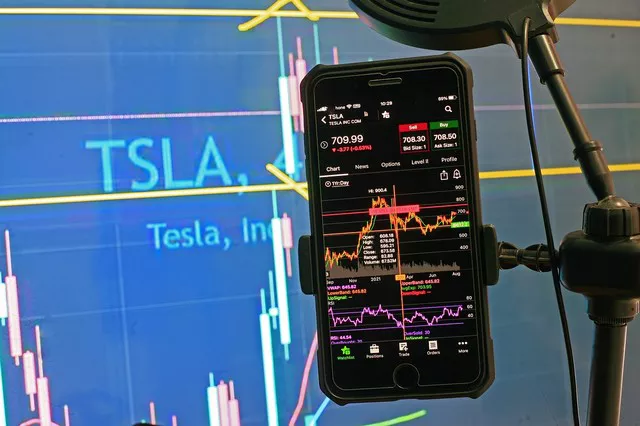In the fast-paced world of financial markets, stock futures trading stands as a prominent avenue for investors and traders seeking to capitalize on price movements and manage risk.
Stock Futures Trading: An Overview
Stock futures trading involves the buying and selling of standardized contracts that obligate traders to transact a specified number of shares of a particular company’s stock at a predetermined price on a specific future date. These contracts serve as a means for market participants to speculate on the future price direction of stocks, whether they anticipate price increases (going long) or decreases (going short). Stock futures trading provides opportunities for profit potential and risk management in the ever-fluctuating stock market.
Mechanics of Stock Futures Trading
The mechanics of stock futures trading are rooted in the concept of derivatives. Derivatives derive their value from an underlying asset, in this case, the stock of a company. A stock futures contract outlines the terms of the trade, including the number of shares, the agreed-upon price (known as the futures price or strike price), and the expiration date of the contract. The trader taking a long position commits to buying the shares at the predetermined price, while the trader taking a short position agrees to sell the shares.
Leverage and Margin Requirements
One of the notable features of stock futures trading is leverage, which allows traders to control a larger position with a fraction of the total contract value. To initiate a stock futures trade, traders are required to deposit an initial margin, which is a percentage of the total contract value. While leverage can amplify potential profits, it also increases the exposure to potential losses. Prudent risk management and margin monitoring are essential to avoid overextending one’s position.
Market Participants and Their Objectives
Stock futures trading attracts a diverse range of participants, each with distinct objectives. Speculators, for example, aim to profit from price movements without owning the underlying stock. Hedgers, on the other hand, use stock futures contracts to manage risk. For instance, a portfolio manager may use stock futures to hedge against potential losses in their equity holdings due to market downturns. Market makers play a crucial role by providing liquidity and facilitating trades.
Hedging and Risk Management
One of the primary utilities of stock futures trading is risk management. Investors can use stock futures contracts to hedge against adverse price movements in their existing stock holdings. By taking an opposing position in the futures market, investors can offset potential losses in their stock portfolio. This approach helps protect their investments from market downturns, thereby preserving capital and mitigating risk.
Speculation and Profit Potential
Speculators in stock futures trading aim to profit from price movements in the stock market without owning the actual shares. If a trader anticipates that a particular stock’s price will rise, they can enter a long futures position. Conversely, if they predict a price decline, a short futures position can be initiated. Successful speculation requires a solid understanding of market trends, technical analysis, and a disciplined trading strategy.
Price Discovery and Market Efficiency
Stock futures trading contributes to price discovery and market efficiency. The interaction between supply and demand in the futures market influences the futures price, which, in turn, impacts the spot price of the underlying stock. This interplay ensures that both the futures market and the stock market remain closely aligned, enhancing overall market efficiency and transparency.
Trading Strategies and Techniques
Engaging in stock futures trading necessitates a well-defined trading strategy. Popular strategies include day trading, swing trading, trend following, and spread trading. Technical analysis, which involves analyzing price charts and patterns, is often used to identify potential entry and exit points. Additionally, staying informed about earnings reports, economic indicators, and market news is crucial for making informed trading decisions.
Key Considerations for Stock Futures Trading
While stock futures trading offers opportunities for profit and risk management, there are several key considerations to bear in mind. Thorough research, education, and a clear understanding of the stock’s fundamental and technical factors are essential. Traders should also be aware of the potential for market volatility, especially around events like earnings announcements or macroeconomic data releases.
Conclusion
Stock futures trading represents a dynamic and versatile avenue for investors and traders to engage with the stock market. By understanding its mechanics, benefits, and considerations, individuals can navigate this complex landscape with confidence and strategy. While stock futures trading offers unique opportunities, it requires dedication, continuous learning, and disciplined risk management. Whether used for speculation or risk management, stock futures trading has the potential to play a valuable role in diversified investment portfolios. As with any form of trading, it is essential to conduct thorough research, seek guidance from experienced professionals, and approach stock futures trading with a well-informed and cautious perspective.


